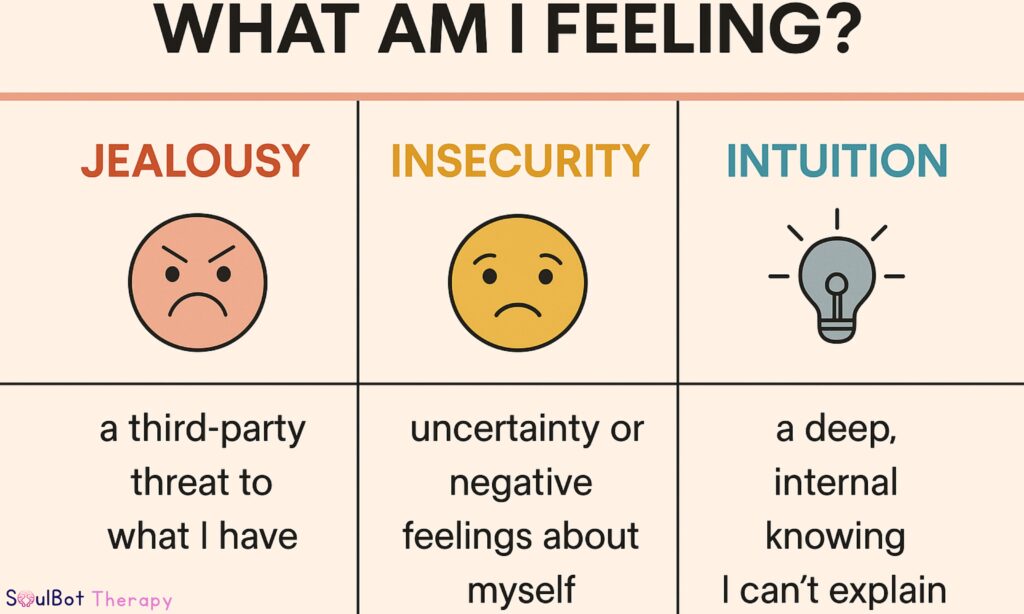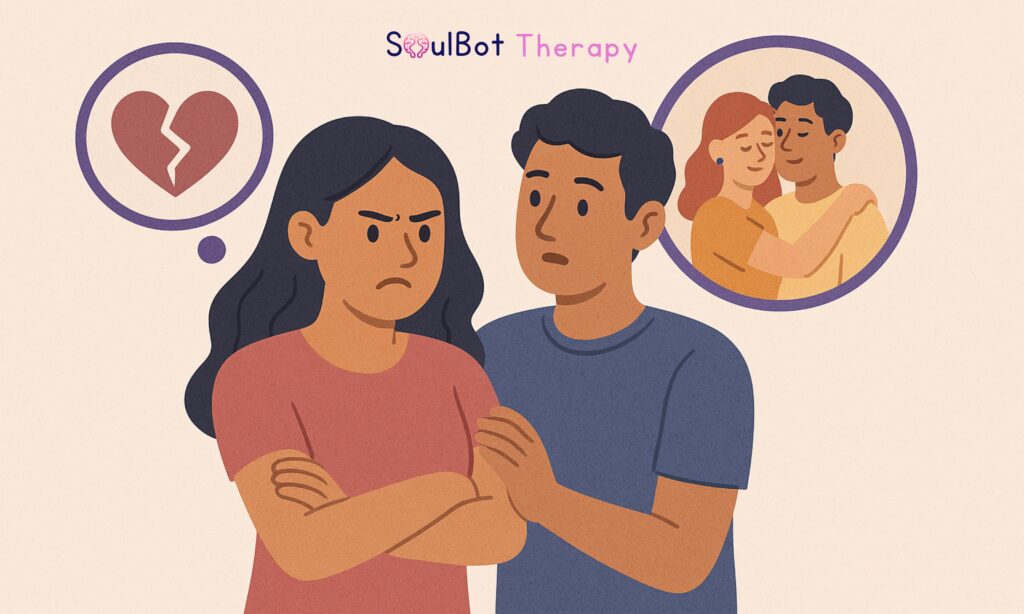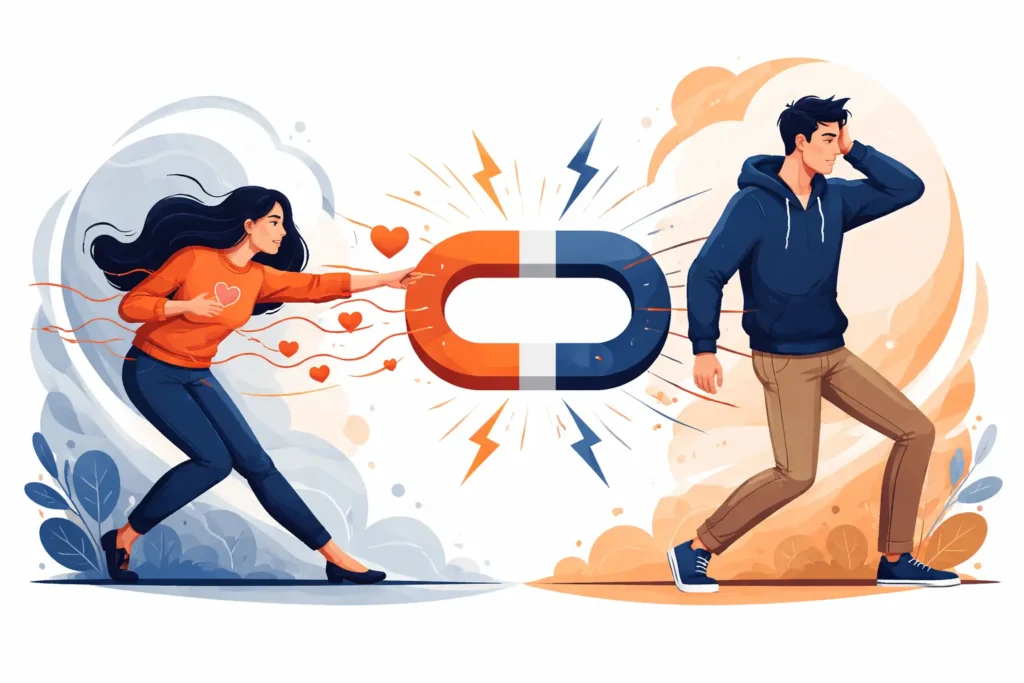“Why do I get jealousy in relationships even when I trust them?”
Jealousy isn’t a sign of weakness; it’s a signal from your emotional dashboard.
And in relationships, if not managed well, it can spiral into suspicion, control, or even emotional burnout.
Let’s explore where jealousy comes from, how to manage it healthily, and how your emotional patterns may be rooted in deeper self-worth or attachment issues.
💡 Did you know that understanding your love language can ease performance anxiety in relationships?
Take the Love Language Test to discover how you give and receive love, because emotional security can reduce pressure and boost connection.
🧠 What Is Jealousy (And Why Do We Feel It)?
Jealousy is a complex emotional response, usually triggered by perceived threats to one’s bond, security, or self-worth.
It might show up as:
- Fear of being replaced
- Insecurity about your value in the relationship
- Comparing yourself with others
- Worry about losing attention or love
It’s natural. It’s human. But it becomes harmful when it controls your actions or erodes your connection.
🚩 Signs Jealousy Might Be Hurting Your Relationship
- Constantly checking your partner’s phone or social media
- Feeling anxious when they talk to others
- Comparing yourself to their exes or friends
- Starting arguments to test their loyalty
- Overthinking or misinterpreting small changes in behavior
💡SoulTip: Studies show that jealousy is more common in relationships with low self-esteem and avoidant/anxious attachment styles.
🔍 What Causes Jealousy in Relationships?
1. Past Trauma or Betrayal
If you’ve been cheated on or neglected before, your brain may stay on high alert even in a safe relationship.
2. Low Self-Esteem
When you don’t feel “enough,” you may assume your partner could find someone better.
3. Fear of Abandonment
Common in anxious attachment styles — the fear of being left creates constant doubt.
4. Unspoken Needs
Jealousy can also be a way your brain signals unmet emotional needs like validation, reassurance, or quality time.
📌 Fact
A study published in Personality and Individual Differences found that people with low self-esteem and anxious attachment are more likely to experience intense jealousy in relationships.
❤️ How to Manage Jealousy in Relationships?
🧘 1. Name the Emotion
Say it: “I’m feeling jealous.” Naming it helps defuse the shame and opens a path for reflection.
🪞 2. Ask Yourself: What’s the Deeper Fear?
Is it fear of rejection? Of not being enough? Of being forgotten? Get honest with yourself.
🧩 3. Communicate, Don’t Accuse
Instead of “Why were you texting them?” try:
🗣️ “I felt insecure when I saw that. Can we talk about it?”
🌱 4. Build Self-Trust, Not Just Partner Trust
When you feel grounded in your worth, jealousy loses its grip.
🧠 5. Explore Underlying Patterns
Use therapy or mental health tools to explore how past wounds show up in current reactions.
🧠 AI Therapy Tools That Can Help
SoulBot Therapy offers a personalized mental health companion powered by AI.
Whether you’re struggling with jealousy, anxiety, or low self-worth, Soul provides:
- Self-assessments to understand emotional triggers
- AI-powered journaling prompts
- Free consultation calls with licensed psychologists
- Supportive blog content to guide you gently
💬 It’s like talking to a therapist who knows your feelings.

🔚 Final Thoughts: Jealousy Isn’t the Enemy, Silence Is
When jealousy shows up, it’s not a sign you’re broken.
It’s a sign that something inside you needs attention, not judgment.
Speak your truth. Hear your fears. And remember: love thrives where emotions are safe, not silenced.








